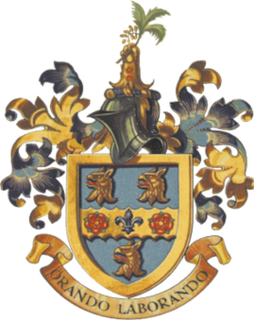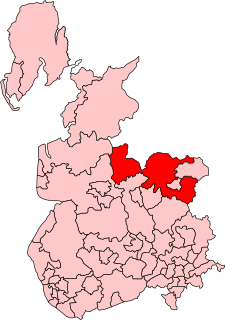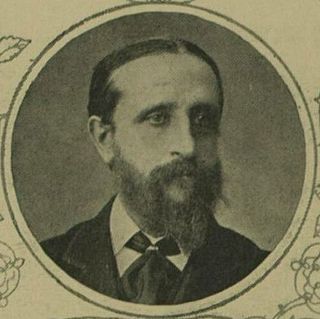
William Edward Briggs (24 September 1847 – 1903) was an English cotton manufacturer and a Liberal politician who sat in the House of Commons from 1874 to 1885.

The Liberal Party was one of the two major parties in the United Kingdom with the opposing Conservative Party in the 19th and early 20th centuries. The party arose from an alliance of Whigs and free trade Peelites and Radicals favourable to the ideals of the American and French Revolutions in the 1850s. By the end of the 19th century, it had formed four governments under William Gladstone. Despite being divided over the issue of Irish Home Rule, the party returned to government in 1905 and then won a landslide victory in the following year's general election.

The House of Commons, officially the Honourable the Commons of the United Kingdom of Great Britain and Northern Ireland in Parliament assembled, is the lower house of the Parliament of the United Kingdom. Like the upper house, the House of Lords, it meets in the Palace of Westminster. Owing to shortage of space, its office accommodation extends into Portcullis House.
Briggs was the second son of Edward Briggs of The Grange, Wilpshire, Blackburn and his wife Ann Slagg, daughter of Thomas Slagg of Manchester. He was educated at Rugby School and at Worcester College, Oxford. He was a cotton-spinner and manufacturer [1] in the firm of J and W E Briggs, which operated the Rose Hill Mill in Blackburn [2]

Blackburn is a town in Lancashire, England, United Kingdom. It lies to the north of the West Pennine Moors on the southern edge of the Ribble Valley, 9 miles (14 km) east of Preston, 20.9 miles (34 km) NNW of Manchester and 9 miles (14 km) north of the Greater Manchester border. Blackburn is bounded to the south by Darwen, with which it forms the unitary authority of Blackburn with Darwen; Blackburn is its administrative centre. At the time of the UK Government's 2001 census, Blackburn had a population of 105,085, whilst the wider borough of Blackburn with Darwen had a population of 140,700. Blackburn had a population of 117,963 in 2011, a massive increase since 2001.

Rugby School is a day and mostly boarding co-educational independent school in Rugby, Warwickshire, England. Founded in 1567 as a free grammar school for local boys, it is one of the oldest independent schools in Britain. Up to 1667, the school remained in comparative obscurity. Its re-establishment by Thomas Arnold during his time as Headmaster, from 1828 to 1841, was seen as the forerunner of the Victorian public school. It is one of the original seven Great Nine Public Schools defined by the Clarendon Commission of 1864. Rugby School was also the birthplace of Rugby football. In 1845, three Rugby School pupils produced the first written rules of the "Rugby style of game".

Worcester College is one of the constituent colleges of the University of Oxford in England. The college was founded in 1714 by the benefaction of Sir Thomas Cookes, a Worcestershire baronet, with the college gaining its name from the county of Worcestershire. Its predecessor, Gloucester College, had been an institution of learning on the same site since the late 13th century until the Dissolution of the Monasteries in 1539. Founded as a men's college, Worcester has been coeducational since 1979.
At the 1874 general election, Briggs was elected as a Member of Parliament (MP) for Blackburn. [3] He was re-elected in 1880, [4] and held the seat until his defeat at the 1885 general election. [5]

Blackburn is a constituency represented in the House of Commons of the UK Parliament since 2015 by Kate Hollern of the Labour Party.
He did not stand in 1886, and at the 1892 general election he unsuccessfully contested the Clitheroe division of Lancashire as a Unionist, though it is unclear whether his candidacy was sponsored by the Liberal Unionist Party or the Conservative Party. [6]

Clitheroe was a parliamentary constituency in Lancashire.
Briggs married Mary Vicars in 1871. [1] The marriage of William Edward Briggs to Mary Ann Susannah Vicars was actually registered in Westminster in 1876. Third Quarter reference 1A page 904 on BMD records.





